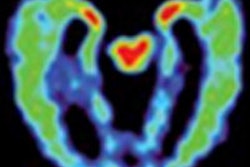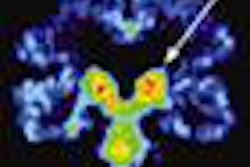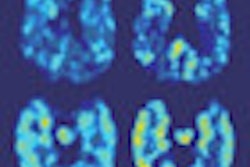With the help of PET, University of California, Los Angeles (UCLA) researchers are assessing the levels of amyloid plaques and tau tangles in older adults with a type of severe depression called major depressive disorder (MDD), according to a study published in the November issue of Archives of General Psychiatry.
The group used the radiopharmaceutical FDDNP, which binds to both plaque and tangle deposits and can be viewed on PET scans. This allows researchers to pinpoint where in the brain these abnormal protein deposits are accumulating.
The UCLA group compared the FDDNP-PET brain scans of 20 older adults ages 60 to 82 who had been diagnosed with MDD with the scans of 19 healthy controls of similar age, education, and gender.
The study showed that in patients with MDD, FDDNP binding was significantly higher throughout the brain and in critical brain regions, including the posterior cingulate and lateral temporal areas, which are involved in decision-making, complex reasoning, memory, and emotions.
In addition, similar protein deposit patterns in the lateral temporal and posterior cingulate areas were associated with different clinical symptoms. Some patients demonstrated indicators of depression only, while others displayed symptoms of mild cognitive impairment as well.
The study was supported by the U.S. National Institutes of Health and the U.S. Department of Energy.



















